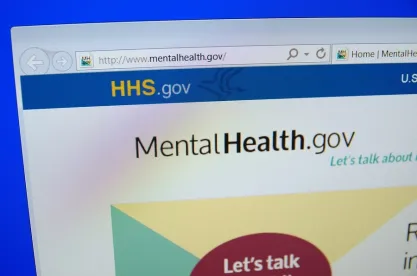On March 6, 2019, the Office of Inspector General (the “OIG”) of the Department of Health and Human Services (“HHS”) released a favorable advisory opinion, finding that a medical center’s programs involving the provision of free follow-up care to patients with congestive heart failure and chronic obstructive pulmonary disease would not be subject to sanctions under federal fraud and abuse laws. Significantly, the OIG found that although the programs did and would implicate the federal anti-kickback statute, 42 U.S.C. § 1320a-7b(b) (the “AKS”), and the beneficiary inducement provision of the Civil Monetary Penalties Law, 42 U.S.C. § 1320a-7a(a)(5) (the “Beneficiary Inducement CMP”), the OIG would, in an exercise of its discretion, choose to not impose sanctions available under these and related statutes.
The advisory opinion is a legal opinion issued by the OIG, in response to a requesting party’s query about how the OIG would apply its fraud and abuse authority to a set of facts provided by the requestor. Advisory opinions are legally binding on HHS and the requesting party only. Although not legal precedent, they provide helpful guidance on how the OIG intends to exercise its authority to enforce applicable fraud and abuse laws.
The opinion, No. 19-03, addressed two programs developed by a nonprofit medical center to ensure post-discharge care to certain high-risk patients. The first program provides free, in-home follow-up care for an approximately 30-day period for certain patients who have congestive heart failure (“CHF”) and have been identified as at a high risk of admission or readmission to a hospital. Qualifying patients who elect to participate receive two visits each week by a community paramedic during the program period. During each visit, the paramedic may provide services such as monitoring the patient’s compliance with his or her discharge plan of care, performing a physical assessment, and assessing the patient’s need for follow-up appointments. The goals of the program are to increase patient compliance with discharge plans, improve patient health, and reduce hospital inpatient admissions and readmissions. The requestor plans to expand these services to a second, similar program for qualifying patients with chronic obstructive pulmonary disease (“COPD”).
In the opinion, the OIG found that the provision of free post-discharge services constituted “remuneration” under the AKS and the Beneficiary Inducement CMP that could influence a patient to select the requestor for federally reimbursable items or services. The OIG also found that not all of the services offered under the program improved patients’ ability to obtain federally reimbursable items or services, and, therefore, did not meet the so-called “Promotes Access to Care Exception” set forth in 42 U.S.C. § 1320a-7a(i)(6)(F) (see note 1 below).
Despite its conclusion that the programs implicated the AKS and the Beneficiary Inducement CMP, the OIG found that the programs would provide significant benefits to patients and included sufficient safeguards against abuse. The OIG, therefore, determined to exercise its discretion and decline to impose sanctions on the requestor. The OIG expressly cited the following favorable factors:
First, the OIG found that the benefits of the programs – specifically, better integrated care delivery for patients with chronic disease – outweighed any risk of impermissible patient steering. In support of this finding, the OIG cited to the requestor’s requirement that patients must already have made a follow-up appointment with the requestor or an affiliated entity related to their CHF or COPD to be eligible for the programs. The agency also cited the requestor’s certification that with respect to any additional services unrelated to the patient’s CHF or COPD, patients are informed of their freedom to choose where to go for such services.
Second, the OIG found that the programs were unlikely to lead to increased costs to Federal health care programs or patients through overutilization or inappropriate utilization, particularly because, with one exception, the services are not covered by Federal health care programs and the requestor certified that it would not submit for reimbursement from any Federal health care programs for any program services. Notably, the OIG remarked that to the extent that the programs would increase utilization – for example, if during the visit, it was determined that the patient required follow-up care – this would reflect medically necessary and appropriate utilization that could result in overall savings if patient health improves and hospital admissions are reduced.
Third, the OIG found that the programs carried a low risk of influencing clinical decision-making, given that the medical center would not compensate any employees or contractors based on the number of patients enrolled in the programs.
Fourth, the OIG found that the requestor’s certification that the programs would not be publicly advertised or marketed lowered the risk of inappropriate inducement. Patients would be informed of the programs only after they had already selected requestor for follow-up care.
Fifth, the OIG found that the programs were reasonably tailored to achieve the program goals, and participating patients would likely benefit from the continuity of care offered by the program, including potential benefits to patient safety and quality of care.
Advisory opinion No. 19-03 evidences both the OIG’s continued strict application of fraud and abuse laws, as well as its effort to balance the reach of those laws with its interest in improving access and supporting preventative and coordinated care. Examples of this effort include recent exceptions and advisory opinions permitting free or reduced cost transportation, lodging and other support for patients,[1] as well as HHS’s “Regulatory Sprint to Coordinated Care” announced last summer. Under the Regulatory Sprint, HHS intends to identify and revise regulatory provisions under several key health care laws – the Health Insurance Portability and Accountability Act (“HIPAA”), the Stark Law, the AKS, and 42 CFR Part 2 – that may act as unnecessary barriers to coordinated care. Over subsequent months since the announcement, participating agencies – the Centers for Medicare & Medicaid Services (“CMS”), the OIG, and the Office for Civil Rights (“OCR”) – have issued requests for information for public comments related to this effort. In a nod towards this context, the OIG notes in the opinion that it has itself previously identified the broad scope of the AKS and the Beneficiary Inducement CMP as potential impediments to coordinated care arrangements, referencing its August 27, 2018 request for information about these laws.
Although HHS and OIG continue to evaluate the permissibility of innovative programs in the context of the agency’s broader goals, providers must be careful to ensure that appropriate safeguards are implemented to mitigate regulatory risk. Advisory opinion No. 19-03 is available for review on the OIG’s website.[2]
[1] See, e.g., Medicare and State Health Care Programs: Fraud and Abuse; Revisions to the Safe Harbors Under the Anti-Kickback Statute and Civil Monetary Penalty Rules Regarding Beneficiary Inducements, 81 Fed. Reg. 88368 (Dec. 7, 2016) (to be codified at 42 CFR parts 1001 and 1003) (final rule adding and amending safe harbors to the AKS to, among other things, protect free or discounted local transportation services that meet certain criteria, and amending the definition of “remuneration” in the CMP regulations to, among other things, except from such definition certain remuneration that poses a low risk of harm and promotes access to care, i.e., the “Promotes Access to Care Exception”); see also OIG Advisory Opinion no. 17-01 (posted March 10, 2017) (determining that proposed arrangement of free or reduced-cost lodging and meals provided by academic medical center to certain patients residing in rural or underserved areas fall under the Promotes Access to Care Exception of the Beneficiary Inducements CMP) and OIG Advisory Opinion no. 16-02 (posted March 1, 2016) (determining that although arrangement of free transportation and short-term lodging provided by academic medical center implicates the CMP and the AKS, sanctions would not be applied).
[2] OIG Advisory Opinion no. 19-03 (posted March 6, 2019), available athttps://oig.hhs.gov/fraud/docs/advisoryopinions/2019/AdvOpn19-03.pdf.




 />i
/>i

